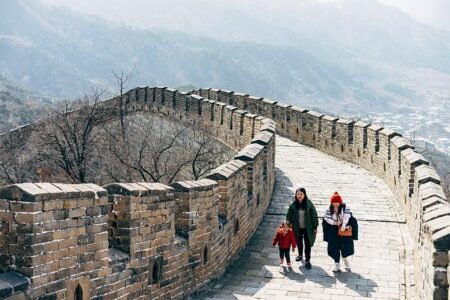Bangladesh and Japan are elevating their long-standing partnership to thrilling new heights, breaking beyond traditional diplomacy to spark a powerful economic transformation. Together, they are forging ahead in trade, technology, and infrastructure projects, igniting a vibrant era of strategic collaboration
Browsing: Asia-Pacific
Rising China’s expanding influence is intensifying strategic tensions with a watchful Japan, igniting a fresh power race across East Asia. As regional uncertainty deepens, both nations are rapidly ramping up their military and diplomatic efforts
Japan’s new leader is turning a recent clash with China into a dynamic political weapon, igniting national unity and boldly reshaping Tokyo’s role in regional diplomacy. This signals a striking new chapter in Japan’s strategic approach
China has unveiled groundbreaking advancements in its nuclear arsenal, dramatically enhancing its deterrence capabilities against potential threats. This bold move underscores Beijing’s steadfast commitment to strengthening its strategic defense power
Tensions are skyrocketing as China and Japan intensify their fierce rivalry over trade and security, with former President Trump’s policies igniting an already volatile geopolitical fire. This mounting conflict is setting the stage for a high-stakes showdown that could redefine the future of the Asia-Pacific region
China has fiercely accused Japan of “crossing a red line,” as tensions over Taiwan reach a boiling point. Beijing slammed Japan’s latest diplomatic actions, highlighting the growing rivalry and escalating strain between the two nations in the region
Japan’s Prime Minister expressed a powerful desire to deepen ties with Beijing, while firmly standing by her recent comments on Taiwan. She emphasized the importance of a thoughtful, balanced strategy amid rising regional tensions, reports South China Morning Post
China’s escalating military maneuvers near Japan boldly challenge regional security and put the US commitment to its ally to a crucial test. These rising tensions highlight the increasing geopolitical stakes in the Indo-Pacific
China’s potential decision to halt rare earth exports to Japan could send shockwaves through global supply chains, escalate geopolitical tensions, and trigger significant economic fallout, Bloomberg reports
Tensions are skyrocketing as a fierce diplomatic showdown between Tokyo and Beijing escalates, putting Japan’s fragile economic recovery at serious risk. Trade disruptions and mounting investor anxiety threaten to derail the hard-won progress, CNBC reports
China has just announced a complete halt on imports of Japanese seafood, ramping up tensions following recent comments about Taiwan. This bold decision marks a dramatic escalation in the simmering diplomatic standoff between the two nations
China and Japan are locked in a high-stakes standoff over Taiwan, escalating tensions across the region. Both nations are testing boundaries in a dangerous game of brinkmanship, fueling fears of an imminent military clash
Tensions skyrocket as China vehemently denounces Japan’s increased military backing for Taiwan, deepening the diplomatic rift. This escalating conflict raises urgent regional security alarms amid growing U.S. involvement
Japan is grappling with a significant economic squeeze as China’s travel boycott deepens amid rising diplomatic tensions. The steep decline in Chinese tourists is striking a powerful blow to Japan’s tourism and retail sectors, highlighting the wide-reaching impact of these escalating geopolitical conflicts
Japan has boldly declared its position on Taiwan, signaling a powerful surge of support amid rising regional tensions. This decisive move marks a clear break from past ambiguity, showcasing Tokyo’s strategic shift in the ever-evolving landscape of East Asia
China has escalated tensions with Japan by threatening economic retaliation amid ongoing disputes. This daring move raises serious concerns about trade stability and regional relations, highlighting a dramatic surge in diplomatic strains across East Asia
China’s travel warnings for Japan have sparked a surge of diverse reactions at home, revealing deep-seated tensions rooted in history and diplomacy. While some urge careful vigilance, others worry about the damaging impact on tourism and the delicate ties between the two countries
China has issued a travel warning for Japan amid rising tensions over Tokyo’s perceived plans to intervene in Taiwan. This move underscores escalating regional security concerns, according to Al Jazeera
China has expressed sharp concerns over Japan’s recent military and security initiatives, urging Tokyo to avoid steps that could escalate tensions in the region, PressTV reports. These remarks highlight growing unease amid the shifting landscape of East Asian affairs
The Philippines has extended a warm invitation to Chinese President Xi Jinping to visit Manila, signaling a keen eagerness to deepen their relationship despite existing tensions. Meanwhile, Manila is actively pushing for a binding South China Sea code of conduct aimed at preserving peace and stability across the region




















